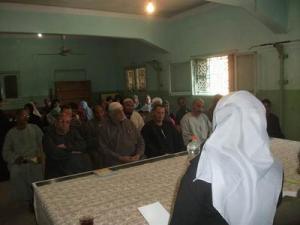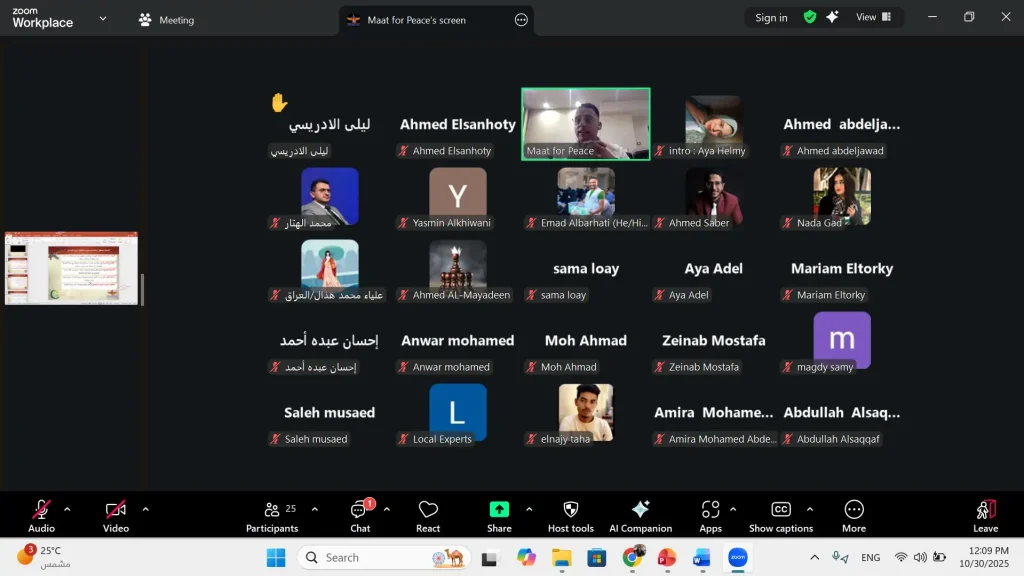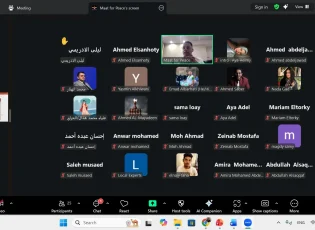Rural women, regardless of whether they reach a distinguished position or level of education, are still ashamed of speaking before the man or opposing him, which has been enshrined in the traditional conservative social upbringing in Egypt. But what is the harm or insult that a woman may cause if she speaks before the man or disagrees with him? This question was raised in the sixth round table held by the Maat Foundation for Peace, Development and Human Rights within the framework of the project to empower women to govern in the Egyptian village “Wusoul”, which is implemented in cooperation between Maat Foundation for Peace, Development and Human Rights and the Australian Agency for International Development (AusAID). To enhance women's participation in local governance in the Egyptian village, by building women's capacity to run in local elections, raising awareness of the importance of women's participation in local governance mechanisms, and building effective community mechanisms in support of the equitable representation of women in elected local popular councils. The round table was held on Tuesday, April 5, 2011, at the Matania Youth Center in Ayat, 6th of October Governorate, and more than forty popular, religious and local leaderships participated in it. The table dealt with the most important problems that hinder women from participating, as the participants explained that the lack of education of rural women is the first and main obstacle to their participation, and that many of them give priority to their homes, just as many village men do not accept their wives participating in elections or a woman’s guardianship over citizens. Some women leaders who participated in the table raised that the level of women's education in Al-Ayyat is high, and the real problem is not about illiteracy as much as it is described by men and their control over their women, as well as the spread of the negative image of working women in the countryside in general, as one of the Salafi religious leaders opposed participating in Al-Ma'idah stated that it is more appropriate for a woman to stay at home and not have political interest, because the participation of women in the elections causes her to mix with men, and that a woman will not be elected if she runs for elections because there are no so-called political rights for women or even elections that were contested by women. However, one of the leaders rose up and said that many opposing or ignoring women's rights is one of the manifestations of the counter-revolution because it is wrong to marginalize women once again in Egypt. The table concluded with a number of proposals put forward by the participants to advance the status of women in order to become a rival opponent for men in the elections, foremost among which was the reform of the negatives that exist within the localities as a system and the amendment of the Local Administration Law in order to support the role of rural women within these councils. In addition to reforming education that perpetuates the same wrong societal habits that girls are less in status and thinking than boys, and educating mothers not to differentiate between girls and boys in treatment and upbringing. Teaching the electoral culture of rural women leaders so that they do not become women leaders, however ,,,,
shortlink: https://maatpeace.org/en/?p=30564












